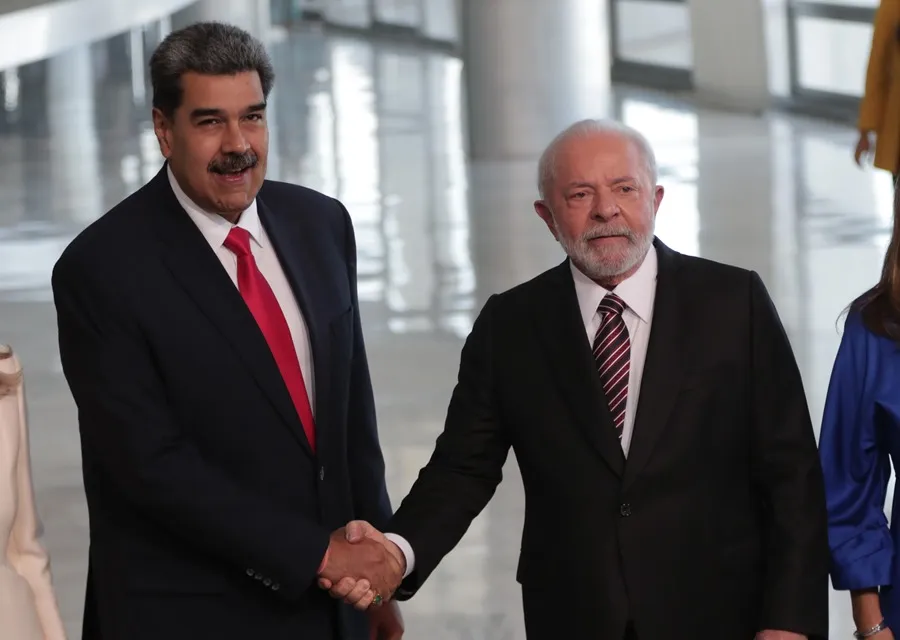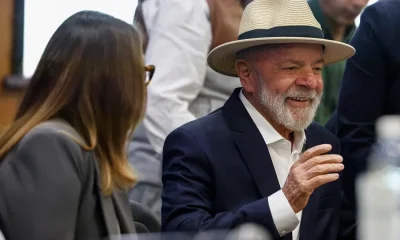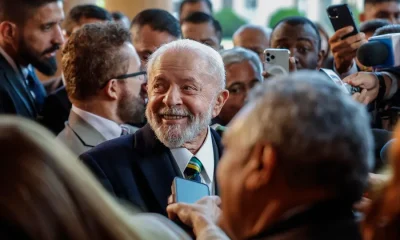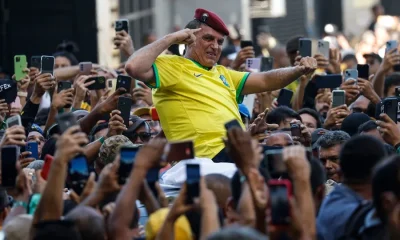International
Lula reiterates to Maduro his support for the Barbados Agreements for the next elections

The president of Brazil, Luiz Inácio Lula da Silva, spoke on Wednesday with his counterpart from Venezuela, Nicolás Maduro, reiterated his support for the Barbados Agreements and stressed the “importance” of a broad international observation in the elections that are planned in that country on July 28.
The Brazilian Presidency reported on that conversation in an official note, in which Lula also “expressed his expectation that the sanctions in force against Venezuela can be lifted, in order to contribute so that the electoral process can continue in a climate of trust and understanding.”
He also reiterated Brazil’s support for the Barbados Agreements, which last year laid the foundations for transparent and free elections but which, according to the Venezuelan opposition, have had violations by the Maduro Government, which aspires to re-election in the next elections.
At the bilateral level, Lula informed Maduro about the interest of Brazilian businessmen in reinvesting and reactivating trade with Venezuela, and asked to strengthen cooperation to improve the protection of Yanomami indigenous people at the common border.
Although Lula emphasized the need for a wide participation of international observers in the July elections, the Superior Electoral Tribunal (TSE) of Brazil announced this week that it will not send any mission to Venezuela.
The electoral body did not explain the reasons for the decision or clarify whether it will participate in a possible mission of the BRICS forum, founded by Brazil, Russia, India, China and South Africa, which like the TSE was invited by Venezuela.
Last week, Colombia also announced that it will not send any mission, because as explained by the Foreign Minister, Luis Gilberto Murillo, there would be no “time” to “structure” it with the technical characteristics required by the Venezuelan authorities.
Likewise, last week the Venezuelan National Electoral Council withdrew the invitation it had made to the European Union (EU) to send observers, after the bloc ratified the sanctions on members of the Government and the ruling party.
The presidents of Brazil, Luiz Inácio Lula da Silva, and Colombia, Gustavo Petro, both of the progressive arc, have expressed “concern” about the obstacles imposed on the registration of opposition candidates for those elections.
In both cases they received a harsh response from the Government of Venezuela, although the matter seemed overcome with the registration of the presidential candidacy of former diplomat Edmundo González Urrutia, standard-bearer of the main opposition coalition.
Central America
Senator Van Hollen Meets with Deported MS-13 Member in El Salvador; Trump and Bukele React

U.S. Democratic Senator Chris Van Hollen, representing the state of Maryland, held a meeting in El Salvador with deported MS-13 gang member Kilmar Ábrego García, a member of the criminal group classified by the U.S. government as a terrorist organization.
“Kilmar Ábrego García, miraculously resurrected from the ‘extermination camps’ and ‘torture chambers,’ now sipping margaritas with Senator Van Hollen in the tropical paradise of El Salvador!” wrote President Nayib Bukeleon X (formerly Twitter), sharing photos of Van Hollen, Ábrego García, and a lawyer sitting together at a Salvadoran hotel.
The deported gang member is seen wearing a plaid shirt and a flat-brimmed cap, seated at a table with glasses and coffee cups. The senator also shared images of the meeting on his own social media accounts.
Bukele reaffirmed that Ábrego will remain in El Salvador and will not be returned to the United States.
“Now that his health has been confirmed, he has earned the honor of remaining under the custody of El Salvador,” Bukele added.
Former U.S. President Donald Trump criticized the senator’s meeting with Ábrego on Truth Social, calling Van Hollen “a fool” for advocating for Ábrego’s return to the U.S.
International
Pope Francis Appears for Easter Blessing, Calls for Peace and Religious Freedom

Pope Francis, still recovering from pneumonia, appeared on the balcony of St. Peter’s Basilica in the Vatican on Easter Sunday and, with a faint voice, wished a “Happy Easter” to the thousands of faithful gathered to celebrate the Resurrection of Christ.
A month after being discharged from a lengthy hospital stay, the presence of the 88-year-old pontiff had remained uncertain, with the Vatican not confirming his attendance ahead of time.
Eventually, the pope made a brief appearance in a wheelchair shortly after 12:00 p.m. (10:00 GMT) to deliver his traditional “Urbi et Orbi” blessing (“to the city and to the world”).
Although no longer wearing an oxygen cannula, the Argentine Jesuit relied on a close aide to read his Easter message, which touched on major global conflicts.
Francis condemned the “dramatic and unworthy humanitarian crisis” in Gaza and called for a ceasefire, while also expressing concern over the “growing climate of antisemitism spreading across the globe.”
He further emphasized the importance of religious freedom and freedom of thought, stating that without mutual respect, “peace is not possible.”
International
Thousands rally nationwide against Trump’s threat to U.S. democracy

Thousands of protesters gathered on Saturday (April 19, 2025) in major cities like New York and Washington, as well as in small communities across the United States, in a second wave of demonstrations against President Donald Trump. The crowds denounced what they view as growing threats to the country’s democratic ideals.
In New York City, demonstrators of all ages rallied in front of the Public Library near Trump Tower, holding signs accusing the president of undermining democratic institutions and judicial independence.
Many protesters also criticized Trump’s hardline immigration policies, including mass deportations and raids targeting undocumented migrants.
“Democracy is in grave danger,” said Kathy Valyi, 73, the daughter of Holocaust survivors. She told AFP that the stories her parents shared about Adolf Hitler’s rise to power in 1930s Germany “are happening here now.”
In Washington, demonstrators voiced concern over what they see as Trump’s disregard for long-standing constitutional norms, such as the right to due process.
-

 International4 days ago
International4 days agoArsenal stun Real Madrid at the Bernabéu to reach Champions League semifinals
-

 Central America3 days ago
Central America3 days agoNicaraguan Exiles to Mark 7th Anniversary of 2018 Protests with Global Commemorations
-

 International3 days ago
International3 days agoDominican ‘False Hero’ Arrested for Faking Role in Nightclub Collapse That Killed 231
-

 International4 days ago
International4 days agoBogotá residents line up for yellow fever vaccine amid national alert
-

 International2 days ago
International2 days agoACLU seeks emergency court order to stop venezuelan deportations under Wartime Law
-

 International4 days ago
International4 days agoDeSantis’ immigration crackdown sparks alarm in Venezuelan Communities in Doral
-

 Central America2 days ago
Central America2 days agoUN complaint filed against Costa Rica over detention of migrant children
-

 International4 days ago
International4 days agoMexico refuses to restore ties with Ecuador while Noboa remains in office
-

 International18 hours ago
International18 hours agoThousands rally nationwide against Trump’s threat to U.S. democracy
-

 Central America33 mins ago
Central America33 mins agoSenator Van Hollen Meets with Deported MS-13 Member in El Salvador; Trump and Bukele React
-

 International35 mins ago
International35 mins agoPope Francis Appears for Easter Blessing, Calls for Peace and Religious Freedom































